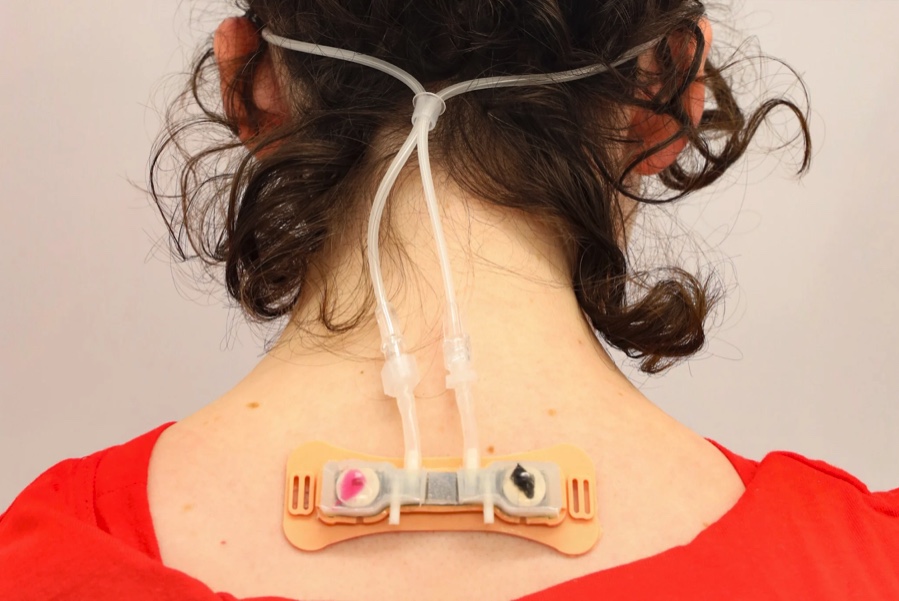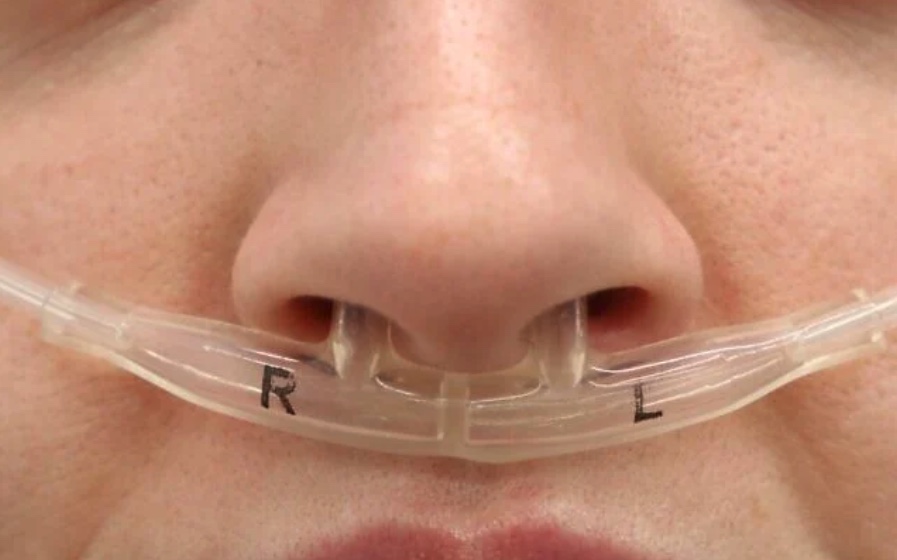ผลวิจัยล่าสุดจากวารสาร Current Biology เผยว่า นักวิทยาศาสตร์สามารถระบุตัวบุคคลได้อย่างแม่นยำถึง 96.8% จาก “รูปแบบการหายใจ” เพียงอย่างเดียว เทียบเท่ากับเทคโนโลยีจดจำเสียงขั้นสูง ที่สำคัญ รูปแบบการหายใจยังสัมพันธ์กับทั้งสุขภาพกายและใจของแต่ละคน จนอาจกลายเป็นเครื่องมือวินิจฉัยโรคแห่งอนาคต

ทีมนักวิจัยจากสถาบัน Weizmann และพันธมิตร ได้ให้อาสาสมัครสุขภาพดี 100 คน สวมอุปกรณ์ติดจมูกเพื่อติดตามการหายใจตลอด 24 ชั่วโมง พร้อมบันทึกกิจกรรมในแอปพลิเคชันมือถือ จากนั้นจึงนำข้อมูลที่ได้ไปวิเคราะห์ด้วย AI ผลปรากฏว่า รูปแบบการหายใจของแต่ละคนมีความเฉพาะตัวสูงมาก แม้จะทดลองซ้ำหลายครั้งในระยะเวลาสองปีก็ยังให้ผลแม่นยำเท่าเดิม ยิ่งไปกว่านั้น นักวิทยาศาสตร์ยังพบว่า รูปแบบการหายใจมีความเชื่อมโยงกับตัวชี้วัดสุขภาพ เช่น ดัชนีมวลกาย (BMI), พฤติกรรมการนอนหลับ, ภาวะซึมเศร้า และความวิตกกังวล โดยคนที่มีความเครียดหรือวิตกกังวลสูงมักมีลมหายใจสั้น และมีจังหวะการหยุดหายใจที่แปรปรวนในช่วงหลับ บางคนหยุดหายใจหลังหายใจออกเป็นจังหวะคงที่ ขณะที่บางคนหยุดนานบ้างสั้นบ้าง ซึ่งข้อมูลเหล่านี้ล้วนใช้สะท้อนภาวะของร่างกายและจิตใจได้

เบื้องหลังการเชื่อมโยงนี้อาจอยู่ที่สายสัมพันธ์พิเศษระหว่าง “จมูก” กับ “สมอง” จึงเกิดคำถามว่า หากลมหายใจสามารถสะท้อนภาวะสุขภาพได้ แล้วเราจะสามารถ “เปลี่ยนลมหายใจ” เพื่อเปลี่ยนภาวะสุขภาพได้ด้วยหรือไม่? ตัวอย่างเช่น คนที่เป็นโรคซึมเศร้า “หายใจแบบนี้” เพราะโรค หรือเพราะ “หายใจแบบนี้” ถึงทำให้เป็นโรค? ถ้าคำตอบคืออย่างหลัง นั่นอาจนำไปสู่การพัฒนาวิธีฝึกหายใจแบบใหม่เพื่อบำบัดภาวะซึมเศร้าหรือความเครียดได้ แต่ทั้งหมดนี้ยังอยู่ในช่วงเริ่มต้นที่สำคัญของวงการวิทยาศาสตร์สุขภาพ ที่ทำให้เห็นว่า แค่ลมหายใจธรรมดา อาจกลายเป็นเครื่องมือทรงพลังสำหรับวิเคราะห์ตัวตน อารมณ์ ความจำ ไปจนถึงการวินิจฉัยโรคในอนาคต
A recent study in Current Biology reveals that scientists can identify individuals with 96.8% accuracy based solely on their breathing patterns—on par with advanced voice recognition systems. More significantly, these patterns also correlate with physical and mental health, making breathing a potential tool for future medical diagnostics.
Researchers from the Weizmann Institute asked 100 healthy volunteers to wear a nasal device that tracked their breathing for 24 hours while logging their daily activities. AI analysis showed that each person’s breathing was remarkably unique, and this accuracy remained consistent across multiple tests over two years. The study also found links between breathing patterns and health indicators such as BMI, sleep quality, depression, and anxiety. For example, those with high anxiety tended to have shallow or irregular breathing during sleep.
This connection may stem from the unique relationship between the nose and the brain, rooted in human evolution. The findings raise intriguing questions: If breathing reflects mental and physical states, could changing how we breathe help improve well-being? Could targeted breathing techniques be developed to alleviate stress or depression? Though still in its early stages, the research suggests that something as simple as breathing could become a powerful, non-invasive window into our health and emotional state.
#BreathFingerprint #FutureMedicine #MentalHealthTech #updatenews #TheThailanders
For more details, visit : thethailanders.com
ที่มา : www.nationalgeographic.com
















